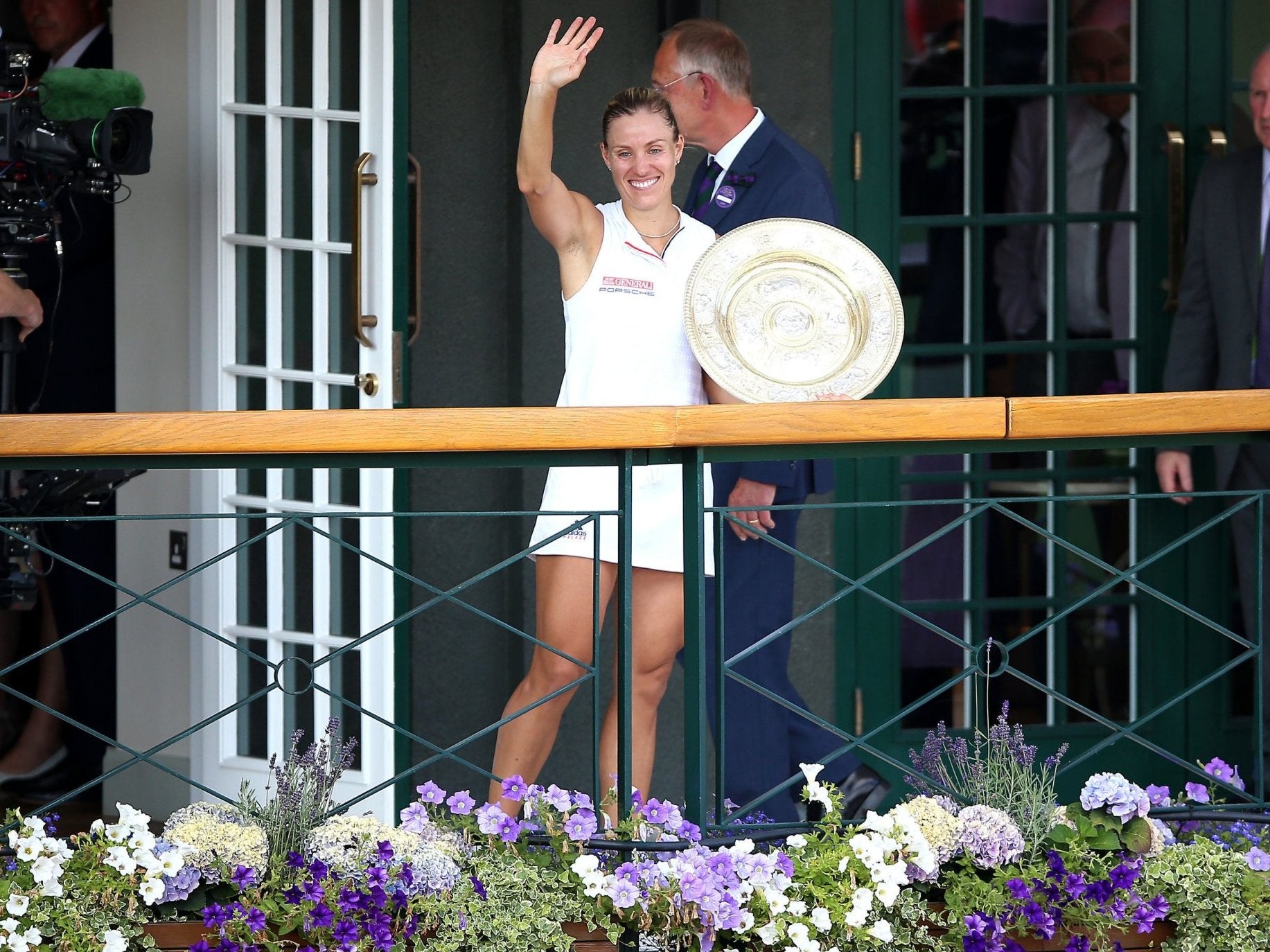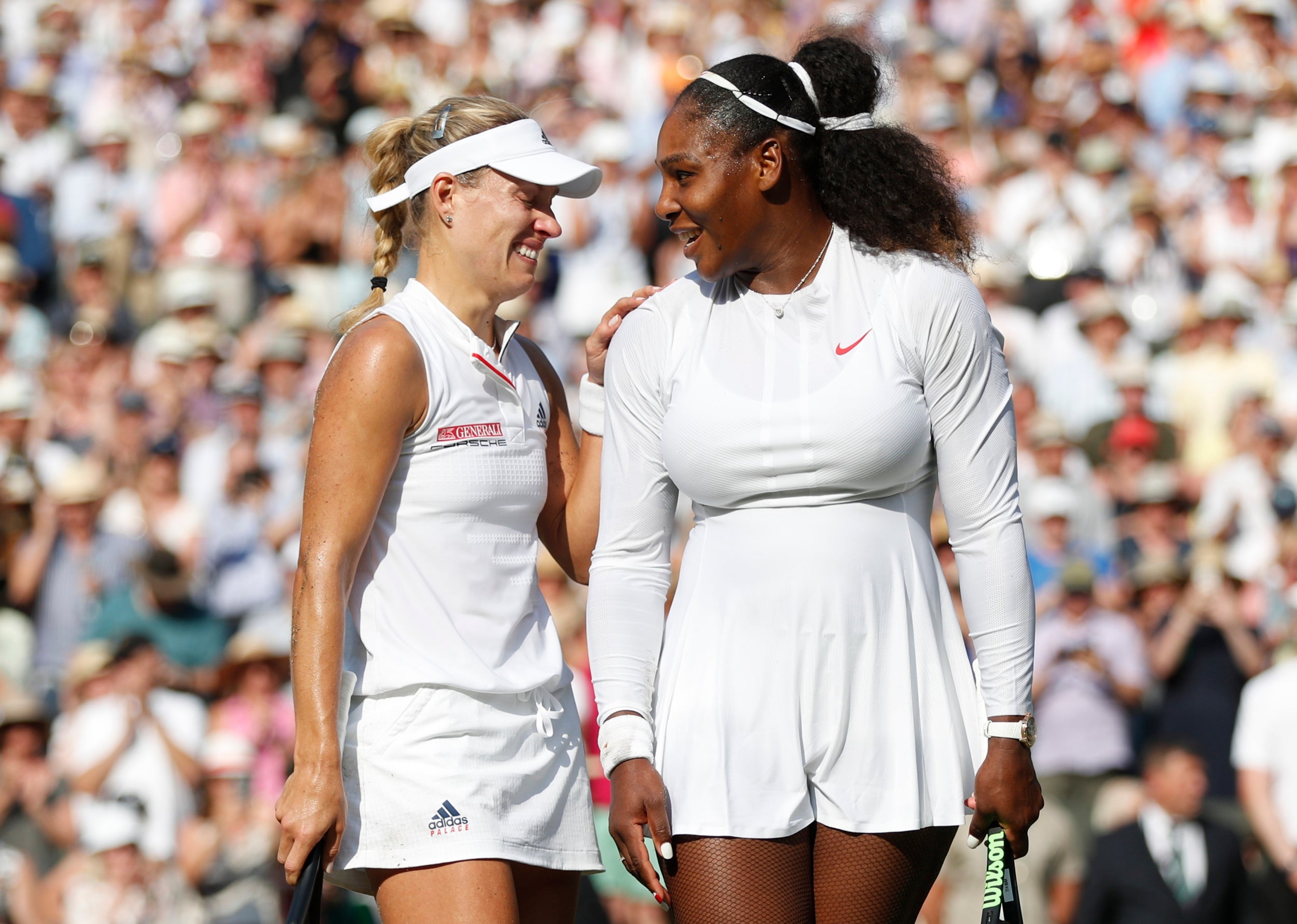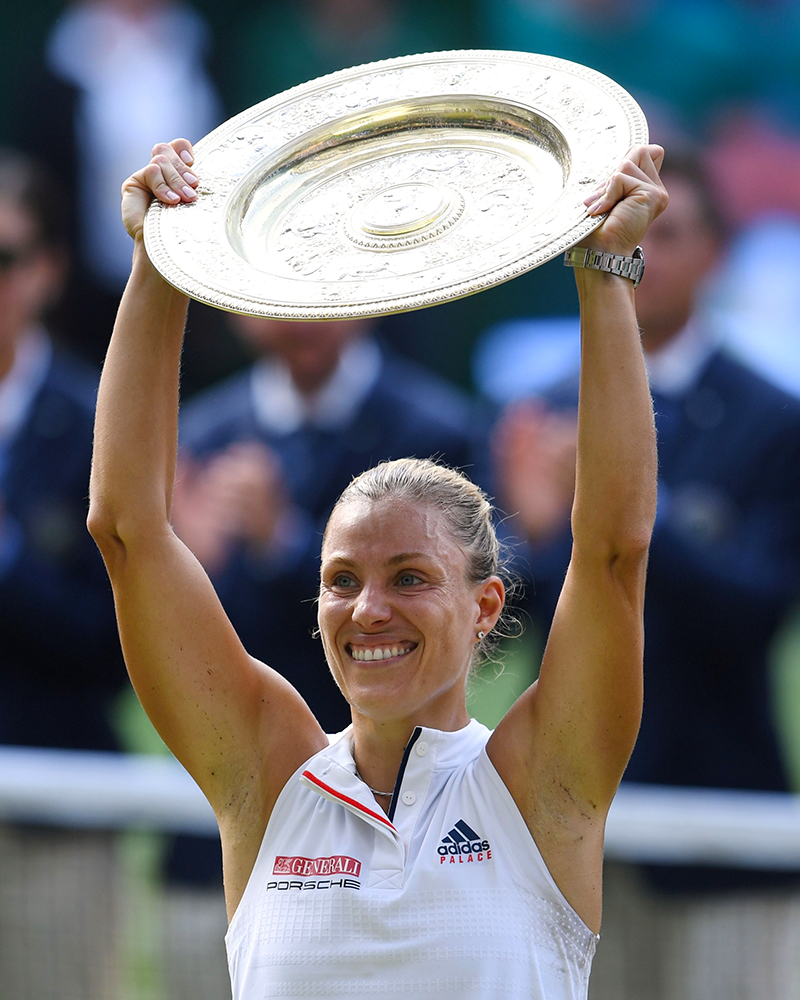Wimbledon 2018: Learning how to enjoy tennis again inspired Angelique Kerber to her final victory over Serena Williams
The newly-crowned Wimbledon champion endured an agonising fall from the top of the world rankings last year, but went back to basics and remembered why she was playing in the first place

Your support helps us to tell the story
From reproductive rights to climate change to Big Tech, The Independent is on the ground when the story is developing. Whether it's investigating the financials of Elon Musk's pro-Trump PAC or producing our latest documentary, 'The A Word', which shines a light on the American women fighting for reproductive rights, we know how important it is to parse out the facts from the messaging.
At such a critical moment in US history, we need reporters on the ground. Your donation allows us to keep sending journalists to speak to both sides of the story.
The Independent is trusted by Americans across the entire political spectrum. And unlike many other quality news outlets, we choose not to lock Americans out of our reporting and analysis with paywalls. We believe quality journalism should be available to everyone, paid for by those who can afford it.
Your support makes all the difference.There were times after her annus mirabilis of 2016 when Angelique Kerber appeared wholly uncomfortable with her place at the summit of women’s tennis.
Winning the Australian and US Opens and reaching the Wimbledon final took Kerber to the top of the world rankings that autumn, a place which she still occupied at the All England Club last summer, despite a dramatic decline in her fortunes on the court. Burdened by the pressures and expectations, Kerber reached only one final last year, at a comparatively minor event in Mexico.
After winning her third Grand Slam title here on Saturday with a 6-3, 6-3 victory over Serena Williams, Kerber, who will climb back to No 4 in the world rankings on Monday, expressed a determination not to go through the same experience this time.
“When you reach the top, you have no idea what you have to deal with,” the 30-year-old German said. “What I’ve learned from that time is that you sometimes have to say no, you don’t do everything and you take time for yourself. You don’t do media and other stuff every single day.
“You just need to take two or three days for yourself. When you do this, I think you can enjoy it more. I did enjoy [being world No 1] but not until the end, because at some points it was completely too much for me.”
Kerber said she would take a break now and would also ensure that she does not rush into next season. “After 2016 I hadn’t really had a lot of time to take a break and really realise what I had achieved,” she said
“After a few weeks I was already in Australia. A lot of things happened and I didn’t know what to expect from the beginning of 2017. Now I know what to expect.
“I know that I still have to put the work in on the court and I know that I still have to push myself to the limits and try to be better and better because there are players coming up, especially younger ones. I also have to enjoy moments like this.”

Kerber believes she would not have rediscovered her form in 2018 if she had not had her troubles last year. “The last two years have given me so much experience – of good things and bad things,” she said.
“I learned so much about myself as a person and I improved as a tennis player. Playing tournaments, playing important matches, being in situations where the pressure is either on you or your opponent, it’s just a process you have to go through.”
Kerber said that having been in the 2016 final here, when she lost to Williams, had helped her this time around. “I knew what to expect before the match, what to expect after, how the ceremony is, all the things that come after,” she said. “That gave me more of the feeling that I could be relaxed.”
In her four Grand Slam finals Kerber has won three times and pushed Williams hard in her defeat to the American here two years ago. “I really look forward to these matches, because they are the matches where I know I have to play my best,” she said. “When I’m practising and working hard they are always the matches I have in mind.

“I know that I have to play my best, especially against Serena. When I am playing against the best players in the world I know that I have to go for it and take the match in my hands. I also try to enjoy it a little bit, because without the joy you are too nervous. Of course you are nervous in the first few minutes, but then you have to realise you are here for a reason, and you have to let it go and enjoy it.”
Kerber was already wearing her badge as the latest member of the All England Club. “It means a lot to me, knowing I am a member here,” she said. “This is something so huge. I can say that it’s for ever. Even in 30 years’ time I can come here and watch some matches.”
Kerber is the first German women’s singles champion here since Steffi Graf in 1996, but she also has strong Polish connections. She grew up in Kiel, but her father was born in Poland and her mother’s grandparents are also Polish. Kerber herself lives in the Polish town of Puszczykowo, where her grandparents live.
Her grandfather, who owns a tennis centre in the town which has been named after her, has been a particularly big influence on her career. “He always believed in me and was always supporting me,” she said.
Kerber spoke to her grandparents on the phone immediately after her victory here. “They are really proud and without them I wouldn’t be here,” she said.
The new Wimbledon champion has not looked back since appointing Wim Fissette as her coach at the end of last year, shortly after the Belgian had parted company with Johanna Konta after less than a year working with the British No 1.
Kerber said she had told Fissette immediately that she needed to work on her serve. “I knew I had to improve it, especially in the big matches,” she said. “We changed the technique a little bit and also made the second serve a little more confident. That was the first thing we changed a little bit. We’re trying to improve my game and to play more aggressively.”

Fissette, who was Konta’s coach when she reached the semi-finals here last year, said: “I’m lucky I can work with top players like Angelique and like Jo last year. With every player you have a different goal. I knew it was more difficult to win the French than Wimbledon. I knew I was going to have more of a chance winning Wimbledon with Angie.”
He added: “I’m still sure that we haven’t seen the best of Angie. Physically she can do a lot better. Her serve can still improve. The more she feels success with her offensive game the more she will use that as well. The older she gets, the more she will take experience into these matches to stay mentally calm.”
Join our commenting forum
Join thought-provoking conversations, follow other Independent readers and see their replies
Comments